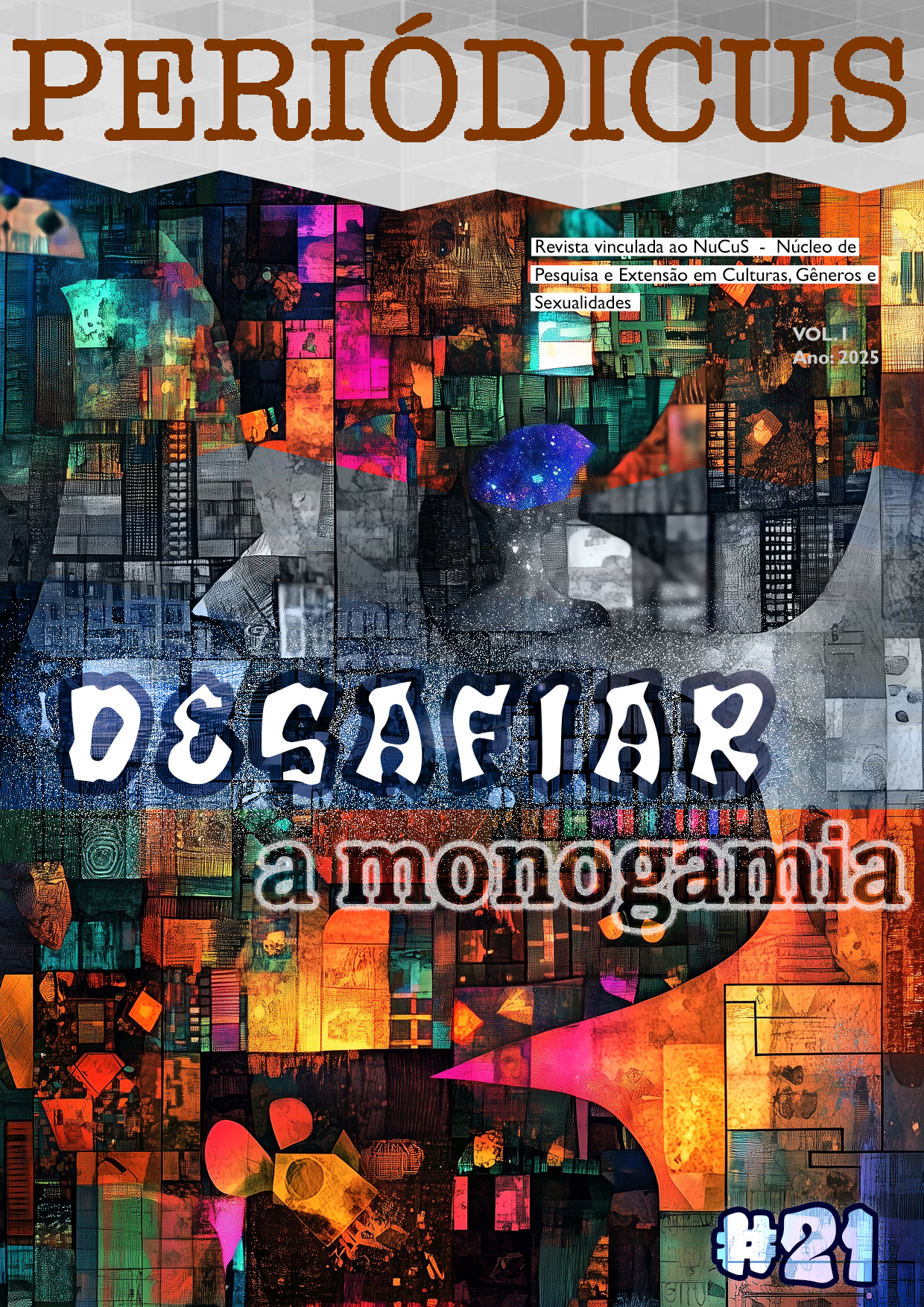“I’m afraid of being monogamous again”
non-monogamy and the dilemma of relational anarchy in the covid-19 pandemic
DOI:
https://doi.org/10.9771/peri.v1i21.58765Abstract
This article aims to discuss non-monogamy from the perspective of black people, paying special attention to how this arrangement was thought and articulated during the time of covid-19 pandemics. The emotional discourse about fear provides us clues to understand the unfeasibility of putting into practice the principle of relational anarchy, interpreted as the “ideal” for non-monogamy. We realize that, on one hand, there is a fear of dying as a result of encounters with other people, and the virus that is ravaging the world; on the other hand, the fear of approaching a monogamous model of relationship and everything it involves stands out, given the restrictions imposed by physical isolation. The methodology used was the combination of content analysis of posts within the Facebook group Afrodengo – Amores Livres and in-depth interviews with its founders. The results suggest that the fear of returning to being a monogamous person, felt by the interlocutors, has to do with overlooking some aspects of relational anarchy, or being more distant from them during the pandemic.
Downloads
Downloads
Published
How to Cite
Issue
Section
License
Copyright (c) 2025 Rhuann Fernandes, Júlia Fleury Ferreira

This work is licensed under a Creative Commons Attribution-NonCommercial 4.0 International License.
Authors who publish in this journal agree to the following terms:
Authors retain copyright and grant the journal the right of first publication, with the work simultaneously licensed under a Creative Commons Attribution Noncommercial License that allows the work to be shared with acknowledgment of authorship and initial publication in this journal, but prohibits commercial use.
Authors are authorized to enter into separate additional contracts for non-exclusive distribution of the version of the work published in this journal (e.g., publishing in an institutional repository or as a book chapter), with acknowledgment of authorship and initial publication in this journal.
Authors are permitted and encouraged to publish and distribute their work online (e.g., in institutional repositories or on their personal website) at any point before or during the editorial process, as this can generate productive changes and increase the impact and citation of the published work (see The Effect of Open Access).








